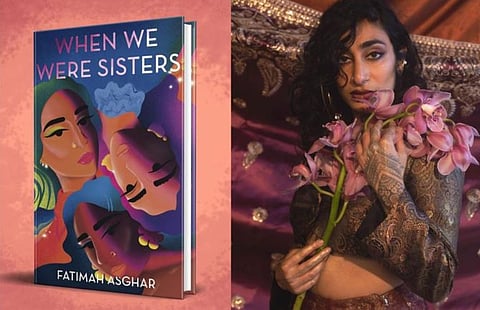
- HOMEGROWN WORLD
- #HGCREATORS
- #HGEXPLORE
- #HGVOICES
- #HGSHOP
- CAREERS
- ABOUT US
- CONTACT US

Examining the bonds and fractures of sisterhood, a lyrical work of fiction by Fatimah Asghar inspects the nature of grief and longing. ‘When We Were Sisters’ is a novel that names the perils of being a Muslim-American girl, playing out the nuances of their layered identity and culture. Even with strong emotional undercurrents the novel remains relatable and brings something to the table for everyone.
Asghar explains how the characters are complex and contend with the ‘unsaid’ like so many of us. The narrative follows the story of three sisters of South-Asian heritage orphaned at a very young age in America. Their long-standing grief takes the form of an omnipresent character throughout the story. Furthermore, it delves into the flawed and broken systems that have a damaging influence on children.
The characters are left to grapple with their own complexities as well as those of the adults around them. The experience leaves the readers with an overwhelming burden of collective failure towards future generations. By representing the rage, pain and indifference experienced by orphaned children, this novel captures grieving as well as catharsis.
As seen in her previous work, the writer is unafraid to delve into topics like race, religion and gender. Through the lens of fiction, she introspects non-binary identities in a dysfunctional family. Asghar also believes that there tends to be a representational burden on artists, especially on someone like her who occupies a body that is Muslim and South Asian.
The ideal scenario would be if the stories themselves normalised the various ways in which different identities are lived instead of carrying the baggage of constantly being a ‘representational voice’. In such a way, we can ensure that this one aspect, while important, does not subsume the identity of South Asians entirely. Her distinct worldview essays a unique perspective to readers and stitches together different human experiences and identities; offering a unique cocktail of comfort and doubt.
